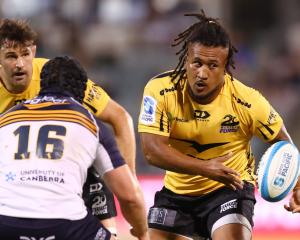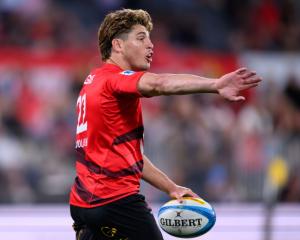Taieri College acting deputy principal Mike Newell said he had viewed the recent debate about school sport, and rugby in particular, in the Otago Daily Times and said it had raised some interesting issues for him.
Newell has been on the Otago Secondary Schools Rugby Council for the past 10 years, and chairman for the past two years. He has also coached at both first XV and representative age group levels.
In a letter to the Otago Daily Times Newell says the Highlanders First XV competition came about despite Otago schools clearly not wanting the competition.
Five years later he said the competition had benefited only two schools - Otago Boys' High School and Southland Boys' High School.
Those two sides had each won the competition twice and appear likely to meet in the final this season.
Newell felt the gap was widening between those that are in the competition and those that are not.
Taieri College has lost many top Year 8 pupils over the past few years as the college was not in the competition, he said.
Taieri College had never been in the competition though it was working its way back up.
He questioned what the competition was doing for Otago junior representative teams as schools built super teams.
''How has this competition benefited our age group rep sides, particularly under-16 and under-18 teams?''No Otago side made the final at South Island under-16 and under-18 tournaments last season.
Many schools were using players from other schools to bolster teams.
He felt that was fair enough for smaller rural schools, but bigger schools were taking the best players from other schools, which was hard on the boys left behind. He also questioned the use of international players, which was on the increase.
He said there was a fine line between poaching and marketing. Coaches from secondary schools telling prospective pupils to come to their school for rugby was often occurring.
He said in late 2011 a pupil at Taieri College received a letter from a prominent Dunedin boys school, with a full letterhead, signed by the first XV coach. He declined to name the school, but supplied a copy of the letter to the Otago Daily Times.
''It stated they needed a quality first five for their team for next year and wanted the opportunity to meet ... to discuss what opportunities they could provide for him.''
He said that was a direct breach of the New Zealand Secondary School Sports Council guidelines.
He sent the letter to the authorities but when he approached the Otago union, he was told by a union staff member that he had given the list of names to the school.
That was a clear conflict of interest, he said. The staff member no longer worked at the union.
The suggestion players had approached the school they intended to move to was in direct conflict to what he had heard from many former pupils.
He has also heard of. -
• A school having to enrol an overseas player who had come to play rugby for a club but played the first half of many school games.
• Opposition coaches encouraging prospective pupils to come to their school.
• A principal having to buy a blazer for a pupil to keep him at school and not move to another school.
• Pupils not attending any classes at school but still playing rugby.
He felt the game at secondary school level was becoming too serious.
''We're starting to lose the soul of rugby, with schools and clubs trying to operate in a professional manner.''












